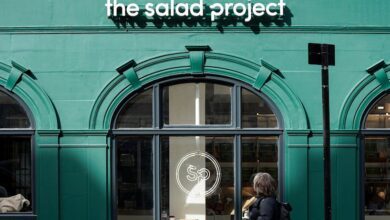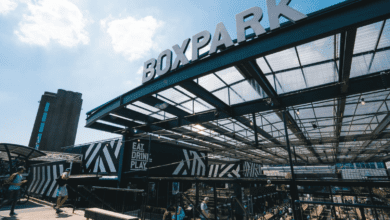Ocado ditches Waitrose; Bill gates orders £500m beast-yacht; Boris to lower immigration wage threshold

A busy start to the week in the business pages. As the coronavirus story unfolds I am reluctant to spend every day providing updates on it, but it is worth noting quickly that there is likely to be some worldwide economic turbulence due to the latest developments.
A slew of different types of stocks are suffering due to the impact of quarantine measures of the scale that the Chinese government is implementing. Hotel companies, airlines and cruise lines are all taking a beating in trading this morning, as news of stranded passengers on cruise ships and transmission of the disease on flights makes its way into the decision-making of holiday makers.
Inflation in China has hit an eight-year high, and the government has announced plans to pump $129bn worth of yen into the economy to try to stave off any instant recession. Furthermore, it is expected that smartphone production will slump by 12% in Q1, including a 10% fall for Apple, and a 15% fall for Huawei.
Even anecdotally, people working for international companies in London tell me their activities have been directly affected by the issues above and that management figures are talking openly of depressed earnings reports that will inevitably result from the problems.
One positive is that officials do now seem to think the rate of new infections has stabilised, and the vast majority of cases of both infection and deaths have occurred within China. The World Health Organisation and dozens of governments are coordinating their responses to try to contain the spread, and in a way, every time you hear of another group of holidaymakers or cruise passengers who have been quarantined, that means an action has been taken to prevent the spread.
Waitrose to respond to loss of Ocado online shopping deal with slew of new products
Many people will regard Waitrose and Ocado as being virtually synonymous, given the relatively high price of shopping with Ocado and the fact that this will inevitably filter for more affluent customers in the first place.
But the deal with Waitrose is up in August this year, and it is reported this morning that the delivery company will be to Marks and Spencer. Obviously this is not great news for Waitrose, but it does also carry risks for Ocado, which cannot be certain of carrying regular Waitrose loyalists with it.
Ocado said in 2019 that the range would be wider, lower cost and higher quality than the current arrangements, with 6,000 products on offer instead of the 4,000 available with Waitrose. In response, the John Lewis Partnership, which owns Waitrose, said it will be introducing as many as 5,000 new or revamped products, has spent millions on development kitchens at its Bracknell HQ to help it achieve the changes, and is running an expensive ad campaign with the slogan: “You can taste when it’s Waitrose”.
In many ways it is yet another tale of the digital disruption tipping point. I say this because JLP has had a tough year, with reports that it would have to cancel its annual staff bonus for the first time in decades, and a disappointing Christmas trading period. Meanwhile Ocado, which spent years as a doubtful upstart that struggled to make any profit, has finally turned a corner and the share price has risen 40% in the same year.
The see-saw between the old bricks-and-mortar behemoth and the high-tech robot and logistics company is not a little bit reminiscent of our reporting on Amazon’s continued colonisation of the retail space. Ocado does not produce its own food – rather it is a logistics provider for companies that do. But it won’t escape investors that the new contract is with a company that has famously struggled to find momentum in the last ten years and only recently dropped out of the FTSE 100 for the first time since its inception.
UK government to ditch £30k wage floor for immigrants
The home secretary, Priti Patel, is soon to introduce changes to immigration policy to stimulate the intake of immigrants from non-EU countries. Currently, skilled workers from outside the EU have to have secured a job attracting a minimum salary of £30,000 before they can be granted the right to work in the UK. Reports this morning say this is likely to be reduced to £25,600, and those from inside the EU will be covered by the same policy once the implementation period of our departure from the bloc ends on 31 December this year.
There is concern among business groups that a stringent immigration policy would restrict the flow of labour from overseas and result in shortages or a sudden and unaffordable increase in wages – the only lever available when there is not enough labour in the market. Patel’s plans also include the possibility of visas for an even lower threshold if the skills possessed by the applicant are in an area which is suffering a particular shortage.
The UK is still subject to EU rules until this end of this year, and during that time, workers from the EU or the European Economic Area can still come to live and work without a visa.
Bill Gates bets (very) big on a hydrogen-powered superyacht
Just a light bit of billionaire-lifestyles titillation to end my roundup this morning – Microsoft mogul Bill Gates has placed an order for a £500m yacht which will use hydrogen fuel instead of the traditional red diesel favoured by yacht manufacturers.
It has an infinity pool, a helicopter pad, the usual gym and spa, and a ludicrous amount of space. It has been designed by a Dutch firm called Sinot, and looks quite radically different from the ship-imitating shapes of other contemporary mega yachts.
But the most remarkable thing about the model is the engines, which consist of two vacuum-sealed hydrogen tanks which are super cooled. When you burn hydrogen, you get H2O. Which is water. This will be a truly zero-emissions creation on the individual level, though presumably it requires some energy to actually produce liquid hydrogen, and the stuff will not be available from tankers at that Monaco berth quite as easily as a diesel truck.
Still, it’s an impressive piece of kit and hopefully a sign that the billionaire community may begin to think twice about burning 250,000 litres of red diesel to buzz from Nice to St Tropez.















